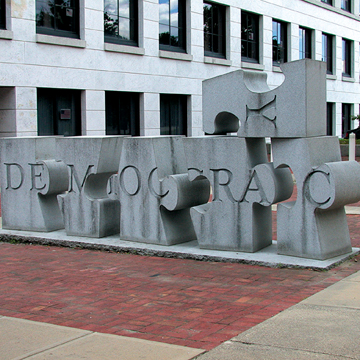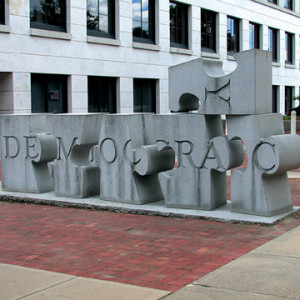Conversations on Participatory Democracy
Innovative democratic professionals are encouraging greater participation in some of our most fundamental institutions, yet what they are doing is rarely the focus of political theory, social science research, or what politicians talk about when they are talking about renewing American democracy. The conversations in this series aim to shed light on new democratic practices taking shape and to find out more about the dynamic people involved.
Helen Beattie is the founder of YATST (Youth and Adults Transforming Schools Together), a set of ideas and tools she and her colleagues have developed with schools all across Vermont to increase and deepen student engagement through collaborative action-research teams. YATST teams, made up of students, teachers, and administrators, have conducted and analyzed dozens of surveys on school practices and facilitated school-wide conversations on their results; sparked changes in student government structure; created pedagogical videos; helped reform student assessment processes; piloted a classroom assistant program giving students a role in instruction; and altered the ways many teachers consult students for guidance on technique and course themes. We talked recently about how she got involved in the work of transforming institutions and about why it is important that youth and adults are working together as partners to change their schools.

